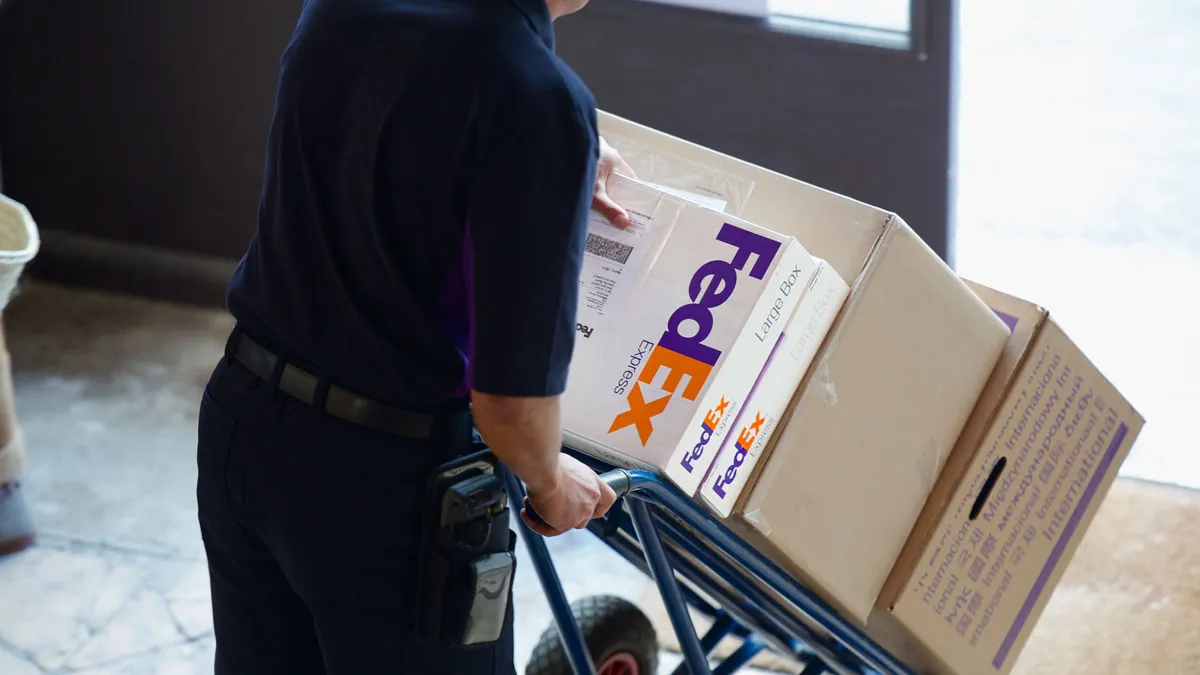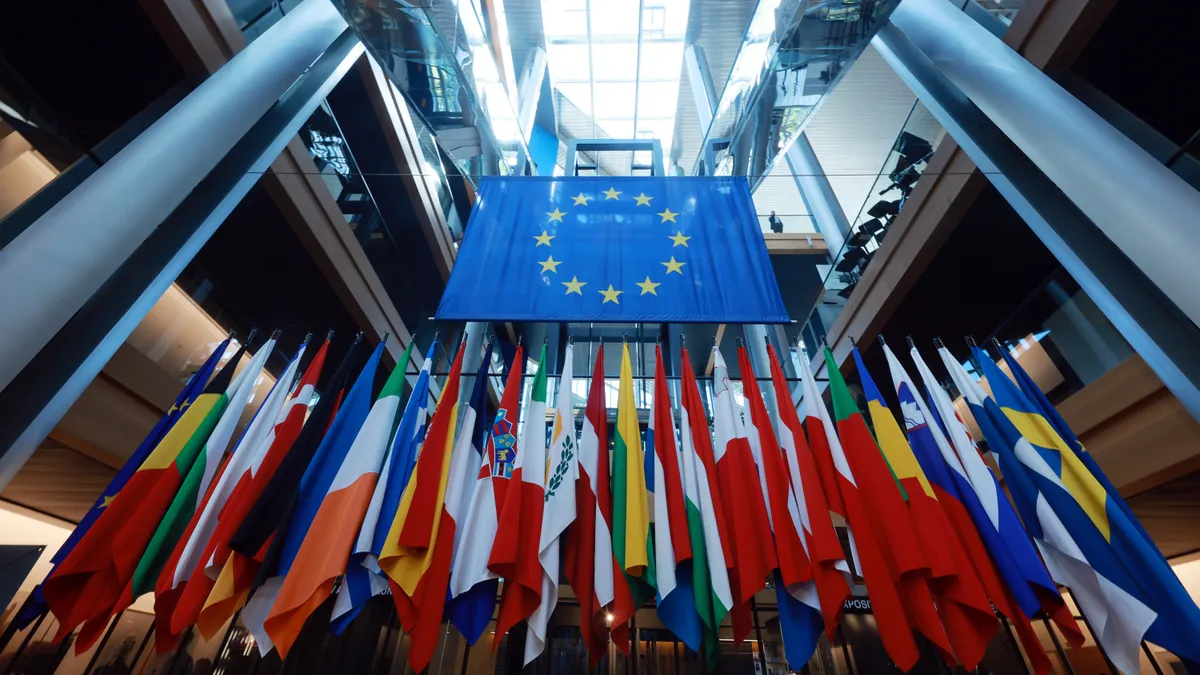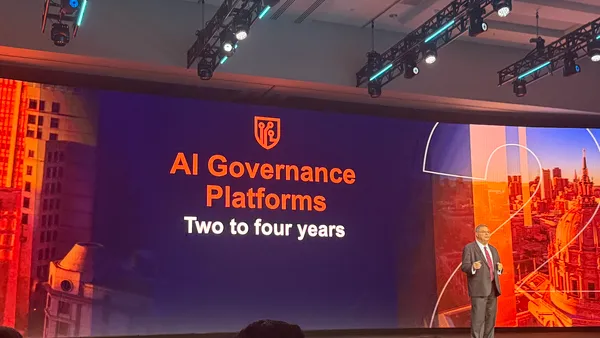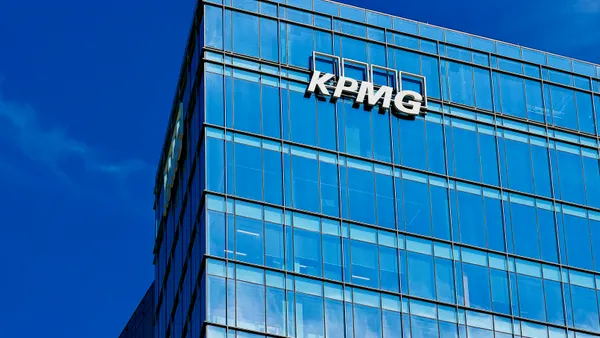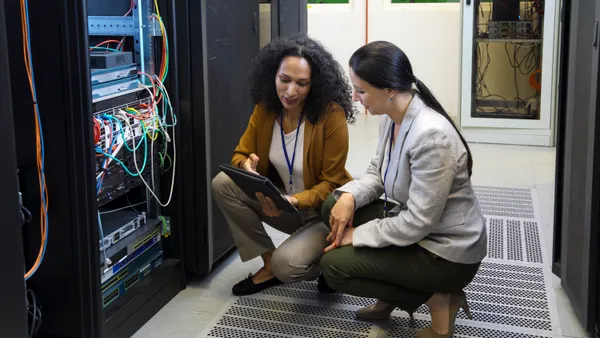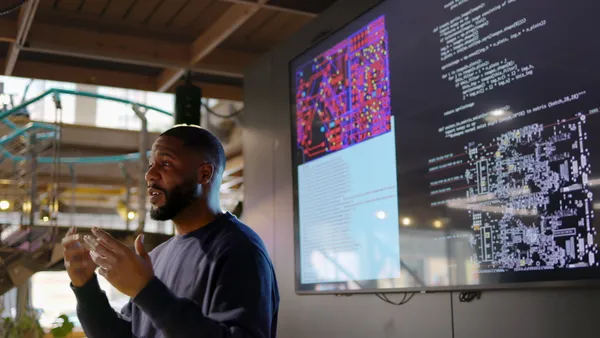CIOs leading enterprise tech are asked to think in two tracks when guiding a company's tech spend priorities: short term and long term.
In the short term, the goal is ensuring the sustainability of daily operations, especially in times of disruption. Long term, executives choose the projects that can push operations forward and provide a competitive advantage. Guided by industry trends, expert insight and return on investment (ROI), execs make the call and run the play.
In pandemic times, there's extra pressure on CIOs to make the right decision. Tech budgets are shrinking, while IT expectations are on the rise. But there's often room for personal passion.
Asked by host Chet Kapoor, chairman and CEO of DataStax, what technologies bring out the "geek" in him, Rob Carter, EVP of FedEx Information Services and CIO of FedEx Corp., listed his top three while speaking on the Inspired Execution podcast series:
- Sensor-based logistics: "In the world of IoT, something that I'm really excited about is sensor-based logistics," said Carter, whose tenure at FedEx spans two decades. FedEx holds "many patents" on embedded sensors, which let the company "light up critical shipments" as they move through the delivery process. "This year will bring a pretty significant wave of innovations from us around that," said Carter.
- Autonomy: Alongside DEKA Development and Research Corp., FedEx has been working on a delivery bot that Carter calls "an interesting application" of the technology. In May, FedEx also filed to register a patent around automating the picking process, featuring a local management system and data storage.
- Blockchain: Blockchain systems are leveraged by supply chain systems to improve efficiency and boost visibility. But Carter also sees potential in the technology to help combat fraud. "As the world becomes more full of counterfeits and issues at borders and things like that, I think blockchain has a huge potential to be an open and connected system inside of supply chains globally," said Carter.a
The question of legacy
When overseeing tech for a Fortune 50 firm, the stakes are high and budgets are expansive. One challenge of leading enterprise technology for an organization the size of FedEx is the shift away from legacy technology, said Carter.
"The hardest thing that we've done is try to marshal forward into the modern, dominant design of technology," said Carter. Enterprise tech systems running on legacy technologies can become "an inhibitor towards being connected in a cloud based world."
Throughout the year, Carter holds planning sessions alongside senior leadership team and industry thought leaders to stay ahead of the innovation curve.
"We'll go 'up and out,' and look at something completely different, and we'll have wonderful connections to luminaries in industry and analytics," Carter said.
Blockchain's upper hand
In blockchain adoption post-pandemic, supply chain is one of the spaces where projects continue unfettered.
Use cases around supply chain that were in place at the start of the pandemic are continuing, said Cliff Justice, U.S. leader of Digital Capabilities at KPMG. ROI is an essential factor helping leaders make determinations around blockchain.
"The data is showing us that the market has a more sophisticated and realistic view of the application of blockchain," said Justice. "There's more tangible ROI in those supply chain areas."
In a letter to stockholders, FedEx CEO Fred Smith said blockchain, along with the insights it can provide, "will completely change worldwide supply chains."
But adoption of blockchain will only thrive in use cases where it can show it has a clear, significant advantage over existing systems to offset the investment and efforts around deployment, Justice said.
While early pilots paused as companies took stock of the impact the pandemic had on operations, running networks — where stakeholders were already aligned and funding was cleared — moved forward.
This is because the coronavirus pandemic put a spotlight on obstacles supply chains already faced. Visibility into shipment location and the interconnectedness of supply chains are two such industry challenges, said Forrester VP Martha Bennett.
The supply chain space is cited by analysts as a critical area for blockchain application since it provides resiliency and decentralization, allowing companies to share a single source of immutable, auditable data.



